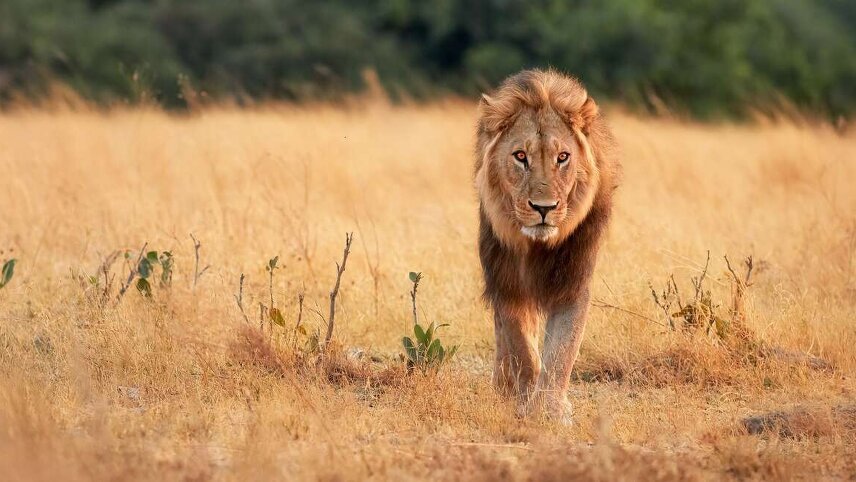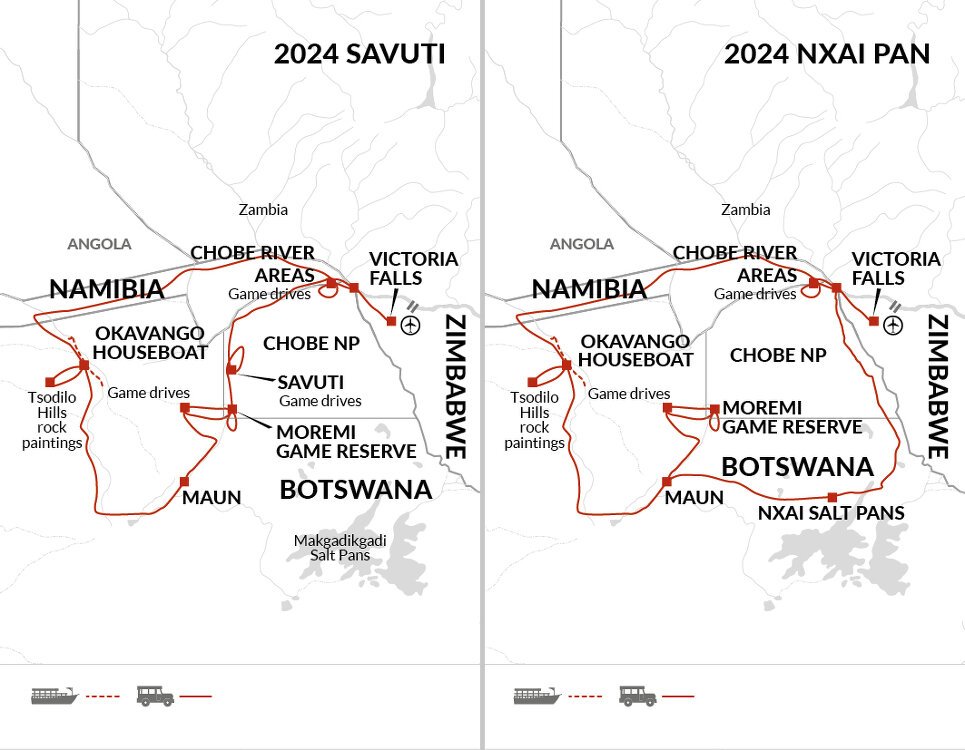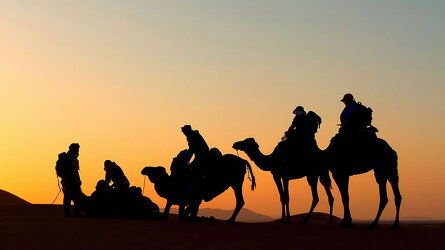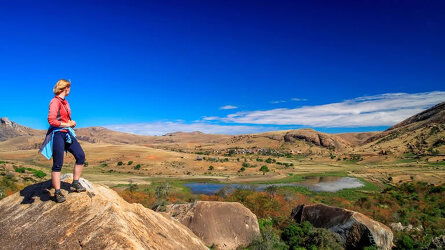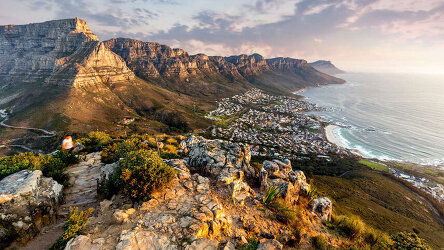Overview
Itinerary
Arrive in Victoria Falls. Often referred to as the adventure capital of Zimbabwe, Victoria Falls offers a variety of land, air and water-based activities in the surrounding area.
For those arriving on time our Leader plans to meet you in the hotel reception at 6pm for the welcome meeting and for those that wish, there is the chance to go out for dinner. There are no other activities planned today, so you are free to arrive in Victoria Falls at any time. If you would like to receive a complimentary airport transfer today, you'll need to arrive into Victoria Falls Airport (airport code VFA), which is 20km, around 25 minutes' drive from the hotel. Should you miss the welcome meeting, your Leader will inform you of any essential information as soon as you catch up.
We will be staying at either the Batonka Guest Lodge or Pioneer Lodge. The two are sister properties located just over 1km from each other and are almost identical. Both are set in beautiful landscaped gardens, feature a swimming pool, spacious rooms, an expansive terrace where breakfast is taken, a bar and a stylish lounge and dining room which are both extremely comfortable. They are both exclusively reserved for residents which ensures the upmost privacy.
If your flight arrives earlier in the day, perhaps you might choose from a host of adventurous activities including whitewater rafting, canoeing and cruises on the Zambezi River. Full details are listed in the 'budgeting and packing' section. Stay: Batonka Guest Lodge (Premium)
Leaving our guesthouse this morning, it's a short hour long drive to the Kazungula land border crossing between Zimbabwe and Botswana. Once border formalities are completed, we continue to our camp site located on the banks of the Chobe River.
For departures until June 2024, we will be wild camping in one of Chobe's national parks campsites for two nights. From July 2024 we move to a permanent campsite at the point where Zambia, Namibia, Zimbabwe and Botswana meet. Located on the waters edge, each tent is built on a fixed platform and has an en-suite bathroom with a sink and flushing WC, there is a separate dining room, bar and lounge area. Both sites offer a perfect base to explore Chobe National Park.
This afternoon we head out for our first safari on a late afternoon game drive. Chobe is the heart of elephant country and is home to approximately 120,000 of the giant creatures.
During the safaris we will travel in customised, open-sided land-cruisers for game viewings. The Landcruisers are ideal for game viewing opportunities but can be a bit brisk and windy during the longer travel days, so ensure you bring some layers for travel days. The roads through Botswana can vary in quality, so travel days can be slow and bumpy but the scenery and wildlife more than makes up for this. Stay: Chobe River Camp (Comfortable) (B/L/D)
We'll maximise our time today to ensure we make the most of game drive opportunities. We head out in the morning and again in the afternoon, for the chance to spot huge trumpeting herds of elephants around the southern bank of the Chobe River, where we can also find Chobe Bushbuck and Puku Antelope.
Other mammals to be seen are buffalo, kudu, eland, waterbuck, sable and roan antelope, zebra, lion, leopard, impala and reedbuck. In the river are hippo and crocodile and the waters teem with bream, barbel and tiger fish (freshwater barracuda). Our tour leader will decide on the exact running times of the day, and lunch arrangements, depending on the weather conditions and the season to ensure the best viewing.
For those that wish to there is an optional afternoon boat cruise along the Chobe River, perhaps the last river where one has a fair chance to see lion, elephant, leopard or wild dog from the unique viewpoint of a boat. See the budgeting section for prices. Stay: Chobe River Camp (Comfortable) (B/L/D)
Today as we will travel south, we'll explore the interior area of Savuti with its sweeping plains, rolling grasslands and marshes which are fed by the erratic Savuti Channel. The channel ran dry in 1982, changing the lives of all wildlife on the plains as the ground baked in the African sun, and remained dry for over 20 years until 2008 when the water once again began to flow attracting animals back in high numbers. We'll have time to watch the herds that live in and around this area including lions, elephants and possibly the leopard, plus an abundance of bird species including the bee-eater and kori bustards.
Safari wild camping
We use 3 x 3 meter dome type tents with private en-suite facilities added to the back of the tent. They are big enough so that someone can stand inside. These tents are made from durable rip-stop canvas and have sewn-in groundsheets. They come equipped with sturdy camp beds, mattresses, fitted sheets, pillow, pillowcases and duvets. Other equipment used on safari are camping basins, washstands, hot water bucket showers and water-based toilets. Safari style fold-up chairs and large tables are provided (all meals eaten from the table). Our great back-up staff does all the cooking, cleaning and setting-up and breaking camp, so the difficult aspect of camping is taken away. This setup allows us to get as close to nature, wilderness, plants and animals as possible. Stay: HATAB Camp Savuti (Simple) (B/L/D)
A full day of game drives in the Savuti area, with morning and late afternoon game drives. Stay: HATAB Camp Savuti (Simple) (B/L/D)
Leaving our Savuti camp, we continue over dirt roads into Moremi Game Reserve's Xakanaxa area (pronounced ka-ka-ni-ka) or Khwai which is an integral part of the eastern waters of the Okavango Delta. The area is encompassed by Moremi Game Reserve and boasts some of the best game viewing in Africa. The game reserve has areas of dry lands rising between vast wetlands, crystal clear water channels on the edges of mopane and apple-leaf woodlands. Game viewing takes place alongside waterways and floodplains.
Species such as giraffe, zebra and wildebeest are but a few that occur here, along with an astonishing variety of birds. For the next three nights we will be camping in Moremi where the waters feed an abundance of flora and fauna, including the frequently-visiting wild dog. Hippos are often heard by night too. Stay: HATAB Camp Khwai (Simple) (B/L/D)
We will enjoy two game drives today. Setting off for our morning game drive at first light (when predator activity is most expected), we get the chance to experience one of Africa's most natural and unspoiled wonderlands in the park with hippo, crocodile and a great variety of birds all seen in the delta, as well as the elusive sitatunga antelope. This place is also an ornithologist's paradise with fish eagle, kingfisher, heron, stork, egret, weaver and bee-eater all regularly seen. We make our way to the banks and floodplains of the north eastern section of the Okavango Delta this morning.
Returning for brunch as the day starts to heats up, the hottest part of the day is spent at leisure at our campsite, a chance of a siesta, relax reading a book or birdwatching. Our afternoon activity departs after tea, usually around 4pm, returning in the early evening. Game drives and activities vary from one day to the next, depending on sightings and animal activities, generally we drive quite far and slowly to absolutely maximize game-viewing potential, all expertly guided by our highly experienced tour leader. Stay: HATAB Camp Khwai (Simple) (B/L/D)
The mighty Okavango is the third largest river in southern Africa. The delta area covers 16,000 square kilometres and is made up of crystal clear channels, countless fleeting lakes and ever-changing islands. The waters flows down in a south-easterly direction from the Angolan highlands, over 1000 kilometres away, taking up to six months to reach the delta area which floods on a annual cycle.
Remaining in the Moremi Game Reserve, today we drive further into the delta area. This exceptional geography and topography attracts amazing wildlife to the waterways and we'll begin game viewing on our arrival. Your guide will generally spend maximum time on game drives, depending on what is seen, trying to cover as wide an area as possible. The result of this is that you will have the best chance of seeing a variety of wildlife. Stay: HATAB Camp Xaxanaka (Simple) (B/L/D)
This morning we take a slow drive out of Moremi, looking out for wildlife along the way and should arrive at Thamo Thelele around lunch time.
The magnificent Thamo Telele is set amongst a lush forest of old growth leadwood and acacia trees, around 25 minutes outside of Maun, each luxury safari-style tent is on raised wooden platforms with hardwood floors and en-suite bathrooms, all with outdoor showers and nature as the back drop. The stylish canvas tents all have twin beds, which can be converted into doubles, and air conditioning above the bed. There is a swimming pool and central main lounge and bar area, where you'll find comfy couches and locally designed wall art. Its a truly exceptional property.
The afternoon is free for you to explore the lodge and its wild surroundings on self-guided walking trails. Alternatively relax by the swimming pool. There is also the option to book a giraffe experience. One of the most fascinating things about the lodge is its resident herd of 20 giraffe, which you can observe while on activities in the reserve and most enthralling get up close and personal to in the evening while they feed at the waterhole. There are naturalists on hand, who will be able to tell you all about these fascinating animals. See the budgeting section for more details.
Dinner is included tonight at the lodge. Stay: Thamo Telele (Premium) (B/D)
Departing after breakfast, we drive up the west side of the Okavango delta panhandle to Shakawe, where we leave our vehicle behind and board a motor launch to our houseboat. On arrival, meet our friendly crew who will be our hosts for the next two nights. After settling in, lunch is served in the top floor dining room, with panoramic windows offering a backdrop of the Okavango river basin.
The accommodation is comfortable, with eight bedrooms with en-suite facilities. Each room has glass doors sliding open on to the wilderness of the remote panhandle area, while on the deck above are seating areas from which to enjoy the sunsets and listen to the birds. The boat will be for our exclusive use during our stay.
Due to seasonal variations in the level and strength of the river, the houseboat itself might only be able to access limited parts of the river for much of the year, whilst we explore the river on smaller launches. However, the amount of water that falls in the catchment area can be highly variable and occasionally, conditions may allow the houseboat itself to cruise in other areas of the delta.
The next couple of days are spent enjoying this spectacular setting. During our time on the river, there is a possibility of seeing a variety of wildlife. We will take an afternoon leisurely launch, we may cruise past submerging pods of hippos, while crocodiles bask in the shallows and on the riverbanks, returning to the houseboat for dinner. Stay: Okavango Spirit House Boat (Comfortable) (B/L/D)
This morning there is the opportunity to visit the intriguing and sacred World Heritage Site of the Tsodilo Hills. The San Bushmen community believe the hills are the site of the first creation and they painted an astonishing 4000 rock paintings across 350 sites marking the area's significance. Here, four impressive rocks jut out of the expanse of the surrounding land, and it is believed by the San Bushmen that the largest of the rocks is the 'man', the second largest the 'woman', and the smallest the 'child'. The fourth rock, which stands apart from the others, is said to be the male's first wife. Some of the paintings are thought to be over 24,000 years old, and as well as the chance to see ancient rock paintings, the hills offer vast views across the countryside below.
A expert local guide will accompany us around the site, interpreting a selection of the paintings. The walking tour lasts around two hours, walking along a flat well graded path. It's possible to opt out at any stage and return to the shade of the small museum located at the entrance of the site. After a late lunch back on board the houseboat, we head out for further wildlife viewing on board our launch.
For those that wish to have more time on the houseboat we will offer a morning launch as an alternative to visiting Tsodilo Hills. Stay: Okavango Spirit House Boat (Comfortable) (B/L/D)
This morning will be a early start to ensure enough daylight hours for the very long journey to Victoria Falls. Today's total journey time is approximately eleven hours depending on time spent at the border crossings, and will of course include comfort breaks and a lunch break.
The drive takes us through north to Namibia's Caprivi Strip, before heading to Victoria Falls in Zimbabwe. The Caprivi Region has a colourful and interesting history, playing a central part in the Berlin Conference of 1890. Named after German Chancellor General Count Georg Leo von Caprivi di Caprara di Montecuccoli, the strip was once administered by the British before it was swapped for Zanzibar with the Germans at a time of great European political manoeuvring.
A late afternoon arrival to Victoria Falls provides just enough time for a refreshing sundowner at our lodge accommodation. Stay: Batonka Guest Lodge (Premium) (B/L)
Often referred to as the adventure capital of Zimbabwe, Victoria falls is most famous as being home to one of the natural wonders of the world Victoria Falls.
This morning we'll visit the falls from the Zimbabwean side of the river where the Zambezi River plummets over a sheer cliff wall spanning more than 1676 meters and dropping approximately 100 metres into the abyss below. The natives named the waterfall, Mosi-oa-Tunya, meaning 'the smoke that thunders' because of the plumes of water vapour that rise like smoke into the sky above the falls, accompanied by the deafening roar. After our guided tour you can take your time to further explore the network of paths and enclaves around the falls.
This afternoon is free to relax, or you may choose to book a two hour game drive in Zambezi National Park in search of the big five. Alternatively, there is the option to take a scenic helicopter flight over the falls or go white water rafting in the Zambezi. All activities can be booked at your lodge directly and full prices are available in the budgeting section of the trip notes. Stay: Batonka Guest Lodge (Premium) (B)
Our tour ends in Victoria Falls after breakfast. Depending on the schedule of your departing flight, you may choose to spend a few hours exploring the town independently.
There are no activities planned today, so you are free to depart from Victoria Falls at any time. If your flight is departing later in the day luggage storage facilities are available at our guesthouse. If you would like to receive a complimentary airport transfer today, you need to depart from Victoria Falls airport (airport code VFA), which is 20km, 20 minutes from the hotel. (B)
Trip Inclusions
- Journey through the vast swamplands of the Okavango Delta by houseboat
- Get excited about seven days of game-viewing in Chobe, Moremi and across the Okavango Delta
- Be amazed by the breathtaking Victoria Falls, one of the natural wonders of the World
- Full on paced trips are for travellers who like their holidays packed with activities and experiences, moving on quickly from place to place with lots of early starts and long, busy days. Some may find them tiring, but others get a buzz from packing their precious holiday-time as chock-a - block full of new experiences as possible.
- Accommodation, itinerary and inclusions subject to change.
- Price is for land, cruise and internal flights as specified. Flights not specified are not included
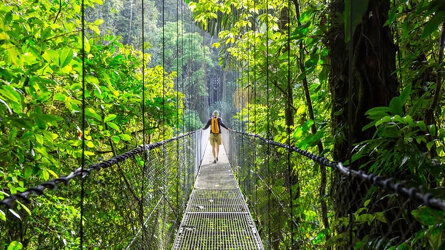
Launching in 1981, Explore offer trips from over 130 countries - from classic small group tours. Read more
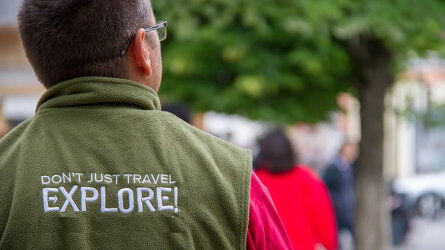
Explore's leaders are more than just your typical guide. They're your local expert are are passionate about sharing their expertise with you. Read more
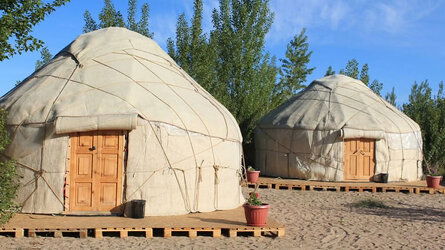
The places Explore stay are every bit as important as the sights they visit and the things you do. Read more
Trip Reviews (1) Most Recent 'Botswana Wildlife Safari' Reviews
Brochure
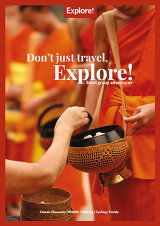
Explore Small Group Adventures (2024-25)
Availability
A definite departure means minimum numbers have been reached for this departure to operate. Your Global Journeys Travel Advisor will check the availability of your departure date when you enquire. Additional savings may apply. We guarantee the lowest price in Australia. T&C’s apply.
Tour & cruises prices are per person. Prices shown have savings applied, are subject to availability and may be withdrawn at any time without notice. Pricing and trip details are correct at this point in time, however are subject to confirmation at the time of booking and are subject to change by Explore. For cruise itineraries, cabin images are sourced from Explore. These should be treated as indicative only. Cabin inclusions, upholsteries and room layout may differ to the image(s) shown depending on the ship selected and your sailing dates.
